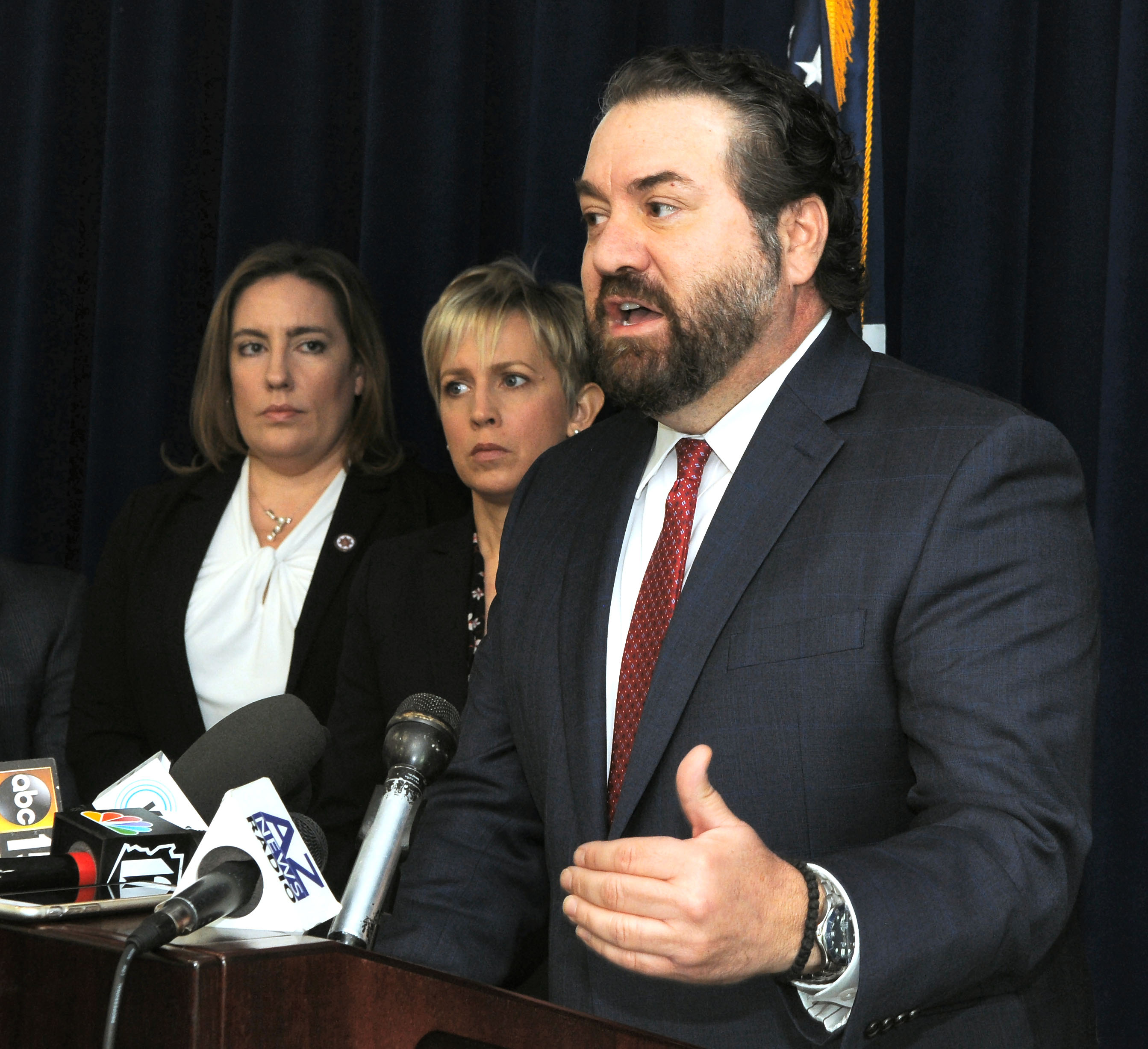Arizona implements law to regulate Bitcoin ATMs and prevent fraud
Emma Kinery, State Affairs//October 9, 2025//
Arizona implements law to regulate Bitcoin ATMs and prevent fraud
Emma Kinery, State Affairs//October 9, 2025//
Arizona’s new law regulating bitcoin ATMs has taken effect, making it the latest state to place new restrictions on virtual currency kiosks in an effort to cut down on predatory scams.
Ten states this year have enacted laws to regulate the machines. Lawmakers in several others, most recently Wisconsin, have introduced legislation to do so.
Bitcoin ATMs, BTMs, cryptocurrency ATMs, or virtual currency kiosks allow customers to convert cash into cryptocurrency and deposit it in a digital wallet. Scammers increasingly are using the machines to facilitate schemes to trick people, especially elderly individuals, into sending bitcoin.
Scammers will often pose as either customer service representatives from banks or tech companies, love interests, or law enforcement officers and pressure victims into depositing money into a virtual currency kiosk. It then converts the cash into cryptocurrency and wires the funds to a digital wallet. The money can then be wired to wallets abroad, making it difficult for law enforcement to trace or recoup.
Arizona House Bill 2387 included provisions to limit daily transactions to $2,000 a day for new customers and $10,500 for existing customers. It mandated warnings to be displayed on kiosk screens alerting users to common fraud tactics, a requirement that the user acknowledge the warnings before proceeding, and for machines to provide transaction receipts, which can be essential to tracing transactions and proving fraud.
Under the new law, cryptocurrency kiosk operators would be required to provide full refunds, including fees, to new customers who report being victims of fraud within 30 days of the fraudulent transaction.
Arizona Attorney General Kris Mayes said in a statement she is “glad” the state “implement[ed] commonsense protections to prevent even more Arizonans from becoming victims of cryptocurrency ATM fraud.”
“Last year, Arizonans lost an astounding $177 million in their hard-earned savings to cryptocurrency scammers,” Mayes said. “This is a good first step, but we need to do even more to protect Arizona seniors from these persistent criminals.”
There are more than 30,000 crypto ATMs across the United States. As the machines become more prevalent, the problems posed by scammers do as well.
Fraud losses due to crypto ATM scams increased tenfold between 2020 and 2023, according to a Federal Trade Commission report. More than $66 million was reported lost due to these scams in the first six months of 2024.
Arizona ranked ninth overall in the number of cryptocurrency fraud complaints filed to the FBI last year. The Arizona Attorney General’s Office said there are an estimated 600 cryptocurrency ATMs in the state, and that the Scottsdale police department has already reported $5 million lost to cryptocurrency fraud in their jurisdiction this year, with nearly $1 million lost in Peoria over the same period.
California and Connecticut in 2023 passed the first laws to regulate the machines and were soon followed by others. In addition to Arizona, bills were also passed this year in: Colorado (Senate Bill 079), Illinois (Senate Bill 2319), Iowa (Senate File 449), Louisiana (House Bill 483), Maryland (Senate Bill 305), Nebraska (Legislative Bill 609), North Dakota (House Bill 1447), Oklahoma (Senate Bill 1083) and Rhode Island (House Bill 5121).
Cryptocurrency fraud overall cost Americans $5.6 billion in 2023, a 45% increase over the prior year, according to FBI data. These scams primarily impact older Americans: Of the 5,500 complaints filed with the FBI related to virtual currency kiosks in 2023, more than half came from people over the age of 60. The Attorney General for the District of Columbia sued a BTM operator last month, alleging 93% of all deposits into the bitcoin ATMs were “the product of outright fraud.” The median age of the victims was 71.
California in July issued the first fine under its 2023 Digital Financial Assets Law against cryptocurrency ATM operator Coinme, issuing a $300,000 penalty for failing to meet regulatory requirements.
Emma Kinery is a State Affairs national reporter covering state politics and policy out of our Washington, D.C. office. Contact Emma Kinery at ekinery@stateaffairs.com or on X @EmmaKinery.
RELATED
States move to rein in crypto ATMs as scams surge
D.C. sues Athena over scam-linked cryptocurrency ATMs
Wisconsin lawmakers introduce bill to regulate bitcoin ATMs and curb scams
California issues first fine to crypto ATM under digital assets law
Pritzker signs cryptocurrency framework, kiosk regulation bills into law
Pennsylvania enacts licensing requirements for crypto transmitters













































